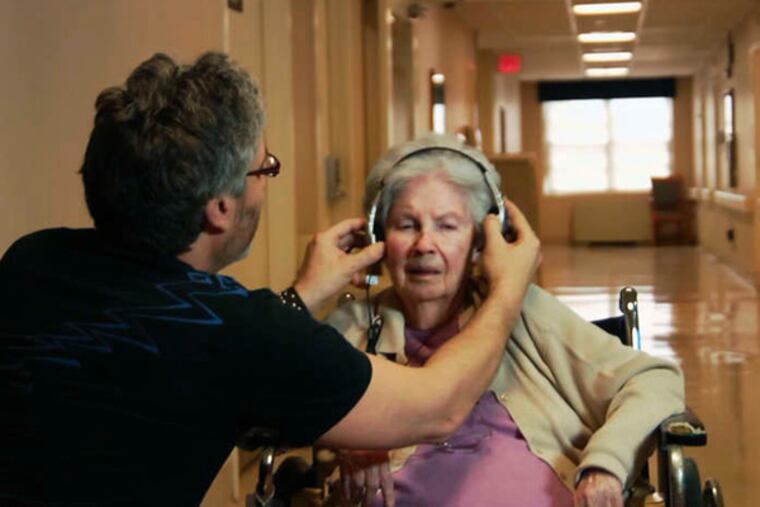Three Sundance documentaries that are linked to Pa.
Since its beginnings, the Sundance Film Festival has been where documentary films come to be born. And this year, three docs with Pennsylvania ties are making news.

Since its beginnings, the Sundance Film Festival has been where documentary films come to be born. And this year, three docs with Pennsylvania ties are making news.
Amir Bar-Lev's documentary Happy Valley focuses on the Jerry Sandusky scandal. In one sequence, we see a standoff between tourists trying to take a picture by the statue of late Penn State football coach Joe Paterno, and an elderly man with a handwritten sign accusing Paterno of covering up for a child molester.
As the tourists verbally abuse the old man, some pushing him aside as he tries to spoil their shots, the battle over the legacy of Paterno and Penn State devolves into a shoving match from which neither side emerges touched.
In another sequence, a TV talking head analyzes how Sandusky abused the need of young, underprivileged boys for a father figure, and the saintly aura conveyed by his proximity to Paterno. Bar-Lev cross-fades into these words, from Paterno's widow, Pat: "He gave us all absolution." Happy Valley does not reinvestigate the crimes, or the charges of a conspiracy to shield Sandusky from justice or Penn State from scandal. With one heartbreaking exception, it does not focus on Sandusky's victims - but rather on the community, and the culture, that allowed Sandusky to act with impunity for decades.
"I think we all would be a lot more comfortable with Jerry Sandusky if he ran out from under a bridge and snatched those kids and raped them," Bar-Lev said over lunch in Park City, Utah. "The way he actually victimized them is by using the cloak of things that are important to us as a society." As in his previous films, The Tillman Story and My Kid Could Paint That, Bar-Lev explores how stories shift and warp as they proliferate through culture, and how agreed-upon narratives ignore facts that don't fit. "There's two ways of looking at something like this," Bar-Lev said. "Either a monster came to town, or we failed the kids. One of those is much harder to accept."
Bar-Lev was joined at the premiere by Matt Sandusky, 34, adopted son of Jerry and one of his alleged victims. In Happy Valley, he speaks with eloquence of his adoptive father's betrayal and of reconciling his wife and children to his traumatic past.
The subjects of Michael Rossato-Bennett's Alive Inside are breaking a different kind of silence, that of Alzheimer's-related dementia, thanks to the sound of familiar songs.
Rossato-Bennett, a Temple grad who grew up in South Philadelphia, says: "Maybe human beings are not that intelligent, and we need to bump into walls to learn things." For him, the medical profession is bumping into walls when it comes to nursing-home care, spending billions on drugs but ignoring the promise of personalized iPods, which in the film seem miraculously to revive patients otherwise incapable of communication. (As dictated by the late Steve Jobs, Apple has a strict no-philanthropy policy, so a corporate donation is unlikely.) Dan Cohen, founder of the Memory & Music project, serves as the film's heroic visionary, spreading the good word one facility, even one patient, at a time.
Rossato-Bennett unabashedly presents Alive Inside as an advocacy film, but Jeremiah Zagar shies away from the suggestion that his second documentary, Captivated: The Trials of Pamela Smart, argues for her release from prison.
Smart, an administrator at a New Hampshire high school, was convicted in 1991 of hiring her teenage lover and two of his friends to murder her husband. Her trial inspired Joyce Maynard's novel To Die For and Gus Van Sant's subsequent film with the same title. Captivated argues that the attendant media frenzy clouded the distinction between truth and a good story.
"I'm still not that interested in [Smart's] innocence or her guilt," said South Philly-born Zagar, son of Philadelphia mosaic muralist Isaiah Zagar. "I think it's almost moot at this point. She'll be in jail longer than the person who pulled the trigger, which is crazy." (Smart is serving life without the possibility of parole.)
Contemporary reports pegged Smart as a black widow, a media vampire who blossomed in the spotlight, but Zagar, who filmed interviews with her in prison, said: "As soon as you put a lens on her, as soon as she's aware of it, she becomes as hard as wood."
A pair of brief candid clips, one from before the murder and one from a prison writing workshop, show a figure far more animated than the icy, apparently remorseless figure from the trial. Captivated suggests that, even with the testimony of the then-teenage boys, who had ample opportunity to coordinate their stories in jail, what doomed Smart was her failure to provide a narrative as compelling as the prosecution's.
Whether the film raises significant, or reasonable, doubts about Smart's conviction, it's a fascinating look at the birth of the court trial as televised spectacle, and how the packaging and repackaging of "real-life" stories inevitably turns them into fiction.